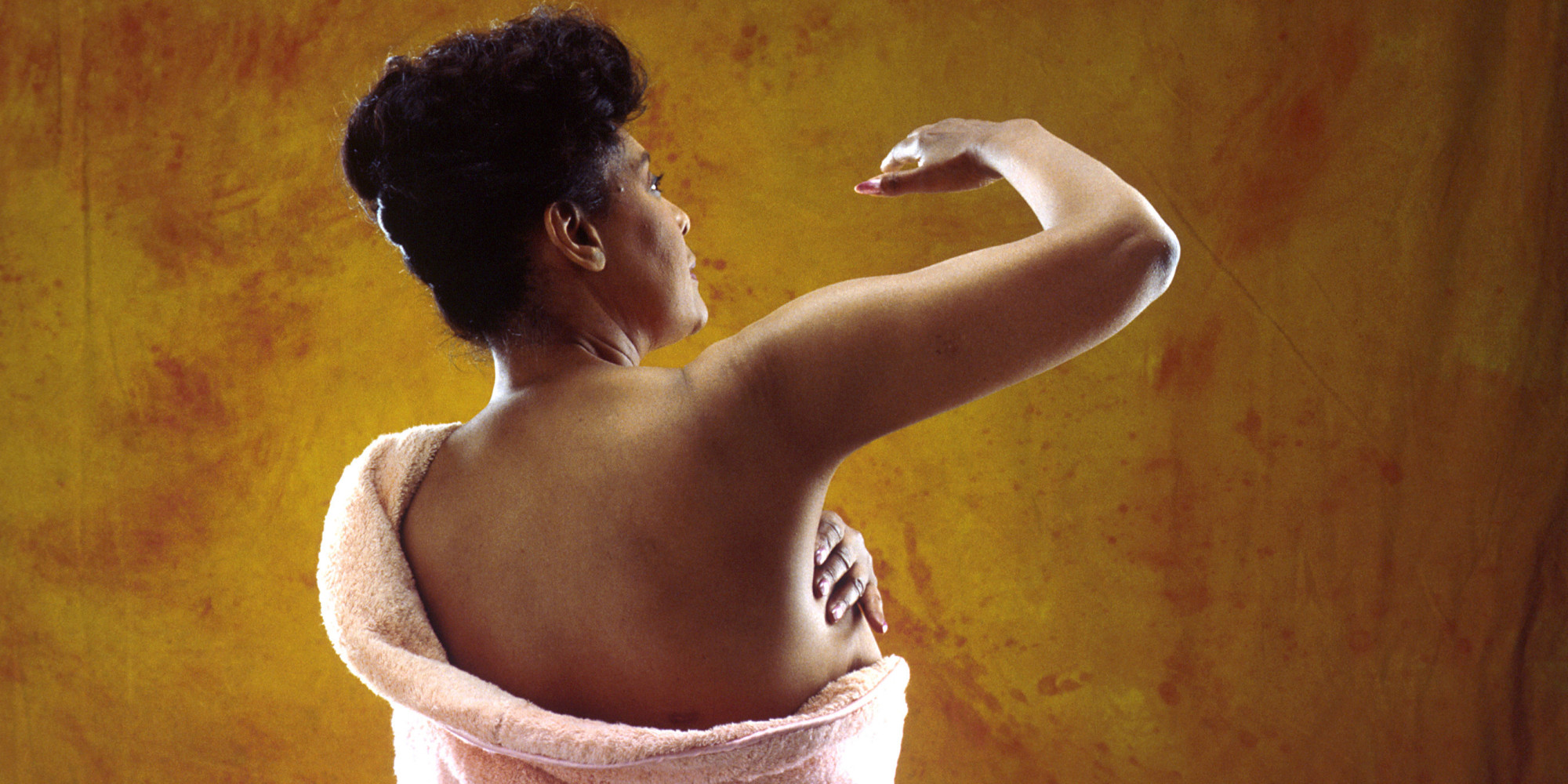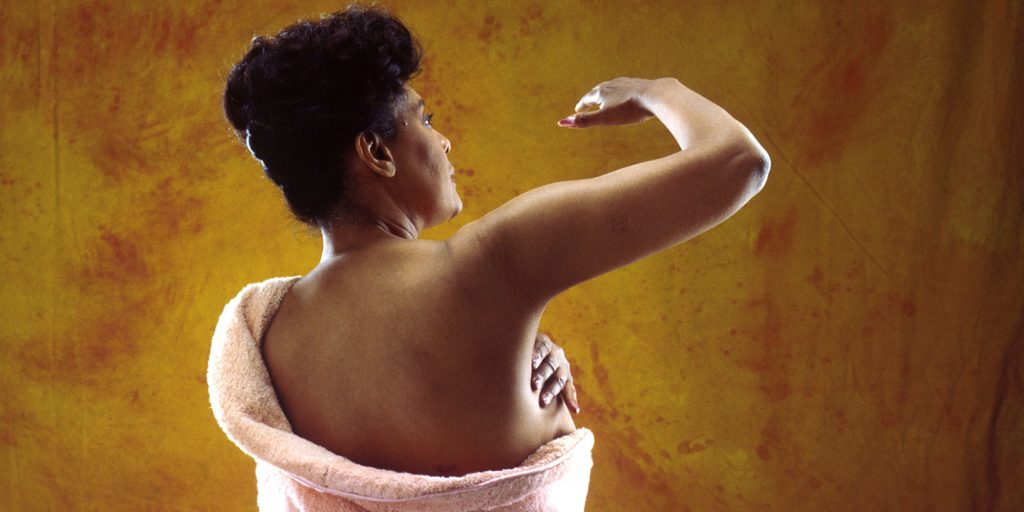Alejandra Campoverdi thought she was stopping breast cancer before it could start. Turns out, her breast removal surgery happened just in time.
At that point, I’d been preparing for my surgery emotionally and physically for close to five years. That’s when I first discovered I carried a BRCA2 gene mutation, which increased my risk of developing breast cancer to as high as 85%. (For non-BRCA mutation carriers, the lifetime risk is 12%.) It was 2013 when I first heard of BRCA, and I immediately urged my mother to take the test. It seemed like it could be the missing link in the generational chain of women in my family who had developed breast cancer.
I remember when the nurse came in to tell me that I’d tested positive. The first thing out of my mouth was, “I know,” because I did. My intuition, coupled with my family history, all but assured me this would be the case.
For a while, I didn’t tell my mom that I had tested positive; I actually didn’t tell anyone. I wanted to choose my course of action based on my own gut, not on the experiences or fears of others. After all, I would be the one who would have to live with the consequences for the rest of my life.
Becoming my own advocate
After I found out I was BRCA positive, I decided to learn everything I could about it—I even became certified as a holistic cancer specialist. For a while I opted for what doctors call “increased surveillance.” When your personal risk is high, the standard guidance (regular mammograms starting at age 40, according to most health guidelines) doesn’t apply to you. I was barely in my mid-thirties when I had my first mammogram. In addition to a yearly mammogram, I also had to have a breast MRI, plus two breast ultrasounds and two CA 125 blood tests (to check for a marker that’s associated with ovarian cancer) every year. I started performing regular self-checks, too.

I felt like I was being proactive enough, but it was exhausting to constantly go to the doctor, not to mention anxiety-producing. As the years passed, I also knew that my odds were increasing because breast cancer risk for everyone goes up with age. At age 30, the average woman has a 1 in 227 chance of being diagnosed with breast cancer within 10 years, but by age 40, it jumps to 1 in 68. By age 60, it’s 1 in 28.
When I started seeing my breast surgeon, Kristi Funk, MD, she explained that when it comes to hereditary breast cancer, the cancer tends to strike earlier and earlier in each subsequent generation. That certainly seemed to be the case in my family. My great-grandmother was in her 70s, my grandma was in her 60s, and my mom was 49. Dr. Funk advised that I have surgery about 10 years prior to the age my mother was when she developed breast cancer. As my 39th birthday approached, it was time.
A surprise diagnosis
In the weeks leading up to my procedure, I tossed and turned for a couple of nights, but my intuition told me that I was doing the right thing. Without the surgery, I was walking around with an 85% chance of developing breast cancer. In one surgery, I would reduce my risk to under 3%. (That’s lower than the risk for the general population.)
When I was wheeled into surgery in October 2018, I felt confident and empowered. I woke up feeling groggy but relieved that it was all behind me. I had no idea that the most shocking part was yet to come.
Six days after my surgery, while I was still bandaged up and had drains coming out of my sides, I received an unexpected call from my doctor. She said the last thing I expected to hear: I had breast cancer.
My mind was completely blown. Apparently, it’s standard procedure to run tests on the breast tissue that’s been removed during a mastectomy—even when the procedure is prophylactic. My doctor explained that my tests had come back showing that I had stage 0 non-invasive breast cancer, also called DCIS, for ductal carcinoma in situ.
The National Cancer Institute now refers to stage 0 breast cancer as a “noninvasive condition,” since the cells haven’t spread beyond the lining of the breast ducts. In the six months leading up to my procedure, I had had a mammogram, a breast ultrasound, and a breast MRI, and they had all come back clear.
Because the caner was at such an early stage, the only way to detect it is through preventive surgery. And since I’d already had the surgery and the cancerous tissue was removed, I would not need to do any more treatment—no chemo, no radiation, no hormonal treatment necessary. I never thought I’d have my decision validated like that. Turns out, I beat cancer before I knew I had it.
Spreading the word
Despite the cancer twist in my story, I was very fortunate. I had good health care, my choice of doctors, and access to lots of information about my options. Yet this is not the case for many, including the women in my family. That’s why I founded The Well Woman Coalition. Well Woman is an initiative to empower women of color to have agency over their own health and healing. The three principles of Well Woman are to arm yourself with information, make empowered choices, and save your own life.
I have also partnered with the University of Pennsylvania’s Penn Medicine Basser Center for BRCA to launch an awareness campaign called LATINX & BRCA. It’s the first campaign to focus on the BRCA gene mutation in Latinos and offers Spanish-language educational materials. Although Latinas have a slightly lower incidence of breast cancer than white women, Latinas are more likely to be diagnosed with the disease in advanced stages. This is due to disparities in health care access and preventive screening, which needs to change now.
To be clear, I’m not here to advocate for preventive mastectomies. Treatment versus surveillance approaches are very personal, and each woman should decide what’s best for her. But if you have reason to believe that you may be at a higher risk of developing breast cancer or have several family members who have battled the disease, consider taking a hereditary cancer test. When it comes to BRCA, knowledge really is power. Even if I had opted against a mastectomy, the heightened level of screening I was undergoing would have likely led to an early diagnosis.
I chose to be public online about a very private journey because I know how isolating it is to navigate BRCA alone. No woman should have to start from scratch when there are so many women who have faced this already. We need to mark the trees for one another and make the path smoother.
I’ve connected with countless women online who are going through the same thing, and we’ve formed a community of support. Sometimes we pass along vitamin and supplement recommendations; sometimes we compare notes on the best post-surgical bras. And sometimes it’s reminding one another that our femininity does not live or die with our breasts. Breasts, no breasts, or implants, it is our courage, grit, and resilience that defines us.


One Response
The post is very informative and educative